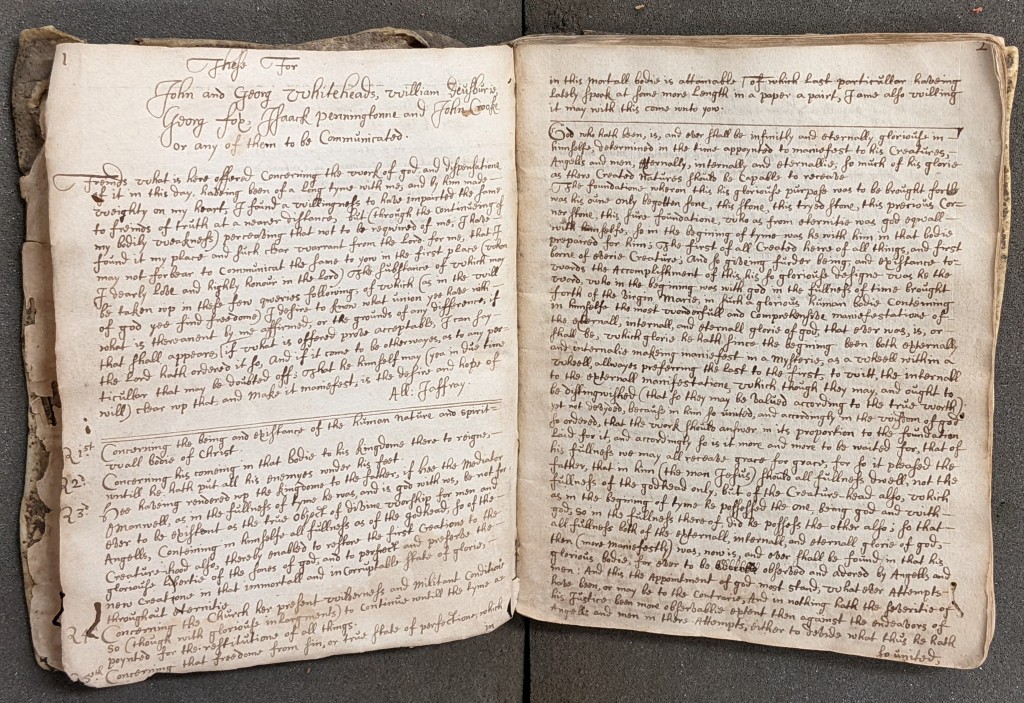Manuscript testament of Alexander Jaffray (1614-1673), dated Kingswells 29 April 1673. Preceded by three addresses/epistles dated February 1672, March 1671 and December 1670 (revised November 1672). Acquired by Aberdeen City & Aberdeenshire Archives in 2022 with a grant of £5,000 from the National Fund for Acquisitions funded by the Scottish Government.
Original documents that shed light on religious belief in seventeenth-century Scotland are extremely rare. The testament of Alexander Jaffray is an extraordinary example of an individual articulating their moral and spiritual viewpoint at a time of significant change within society.

Along with its wider religious significance, Jaffray’s civic connections make the document of particular historical importance to Aberdeen; born into a prominent family, his father was a Provost of the city while Alexander was himself twice Provost, in 1649-50 and 1651-52. He represented the city in the Scottish Parliament between 1644 and 1650. In 1649, and again in 1650, he was one of six commissioners deputed to liaise with the exiled Charles II in Holland, while in June 1653 he was summoned from Scotland, with four others, to sit in the Little Parliament.
Educated at Aberdeen High School and Marischal College, Aberdeen, Jaffray’s religious beliefs changed during his lifetime, reflecting the religious upheaval of wider society. On the moderate wing of the Covenanters after 1638, his contact with Oliver Cromwell and his chaplain, John Owen, resulted in his views on religious liberty being significantly broadened. After his career in civic and public life came to an end in 1661, he became a significant religious leader and thinker, developing a particular affinity with the Quakers and joining their body in Aberdeen in 1662.
Although far from numerous during the 1660s and 1670s, it is likely that there were more Quakers in Aberdeen at that time than anywhere else in Scotland. Together with their Catholic counterparts in the burgh, they became the focus of significant repression and persecution after 1662. Several of the leading lights within the Aberdeen Quakers, including Alexander Jaffray himself, were former magistrates or magistrate’s wives. This made their break with traditional Protestantism all the more galling for those who remained within the established church and who perceived the very presence of the Quaker community as an affront to authority.
It is Jaffray’s thoughts around Quakerism that are contained within the testament, which is preceded in the manuscript by a number of letters to friends in the Quaker community both in England and Scotland. While Jaffray’s memoirs between 1650 and 1661 were rediscovered and published in 1833, they relate mainly to his political life and do not cover his deliberations on Quakerism. Consequently, the present manuscript is a unique record of his thoughts on the subject and his connections to the cause.
The acquisition was also supported by a grant of £5,000 from the Friends of the National Libraries.
Phil Astley
City Archivist
Aberdeen City & Aberdeenshire Archives
